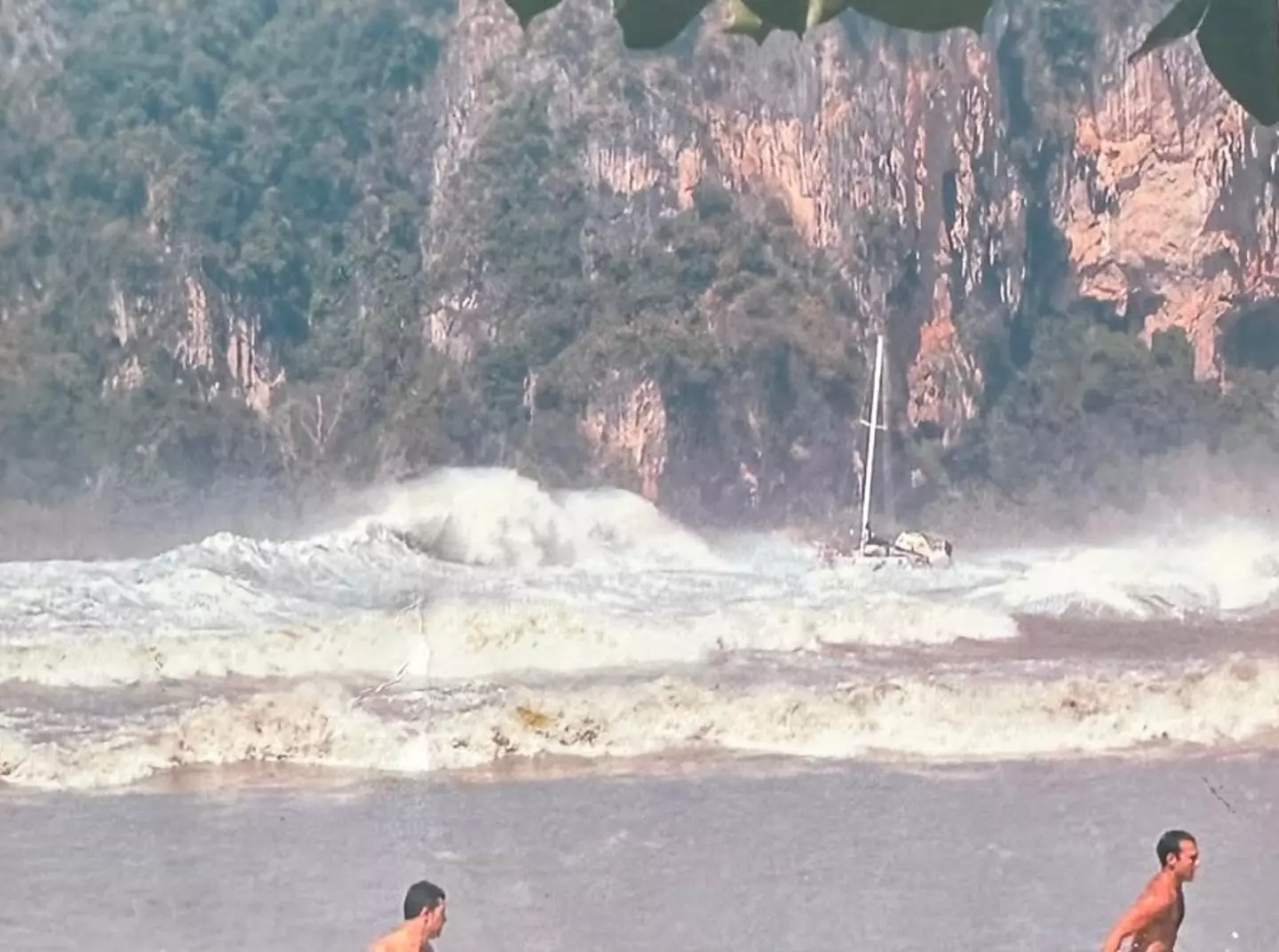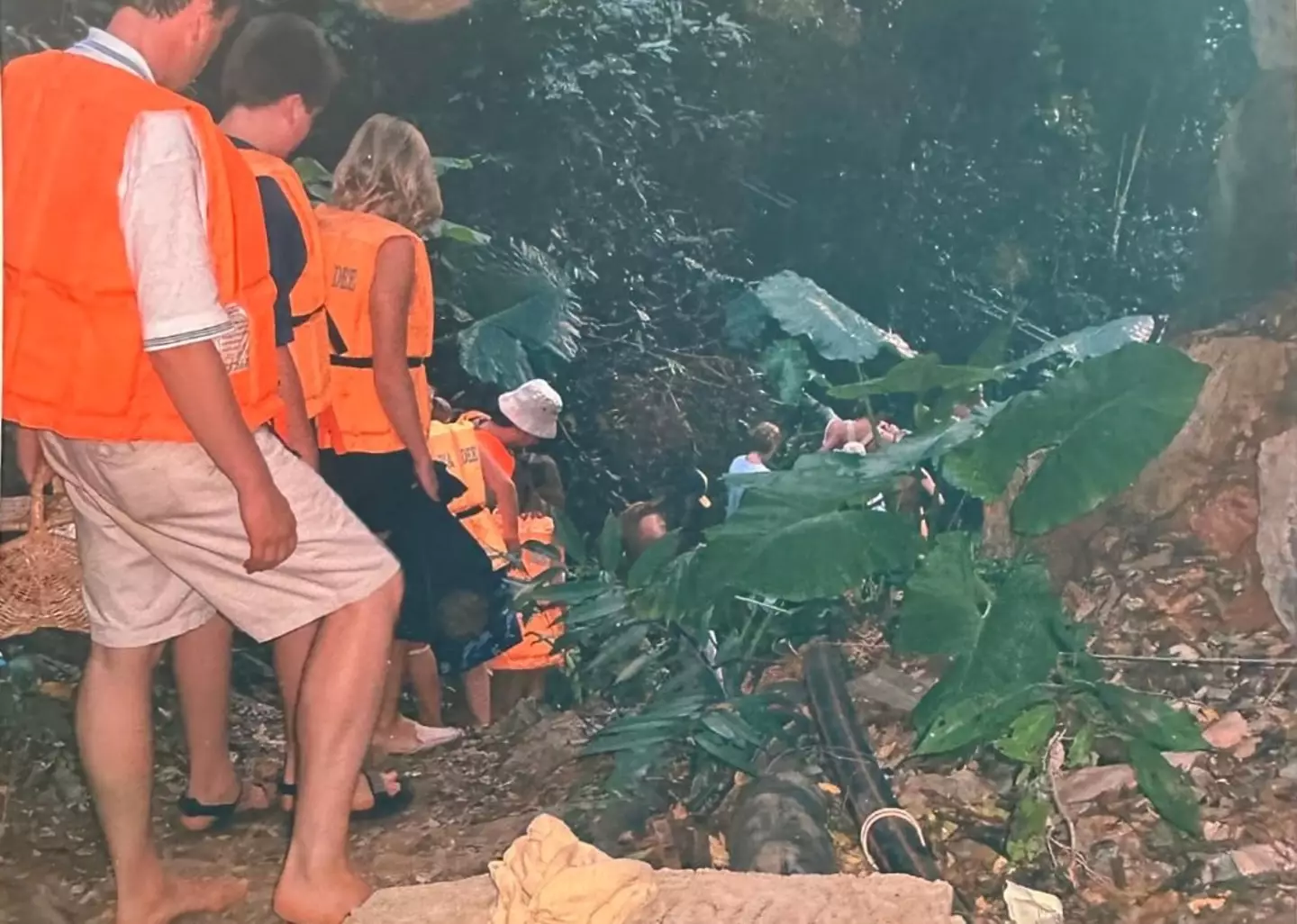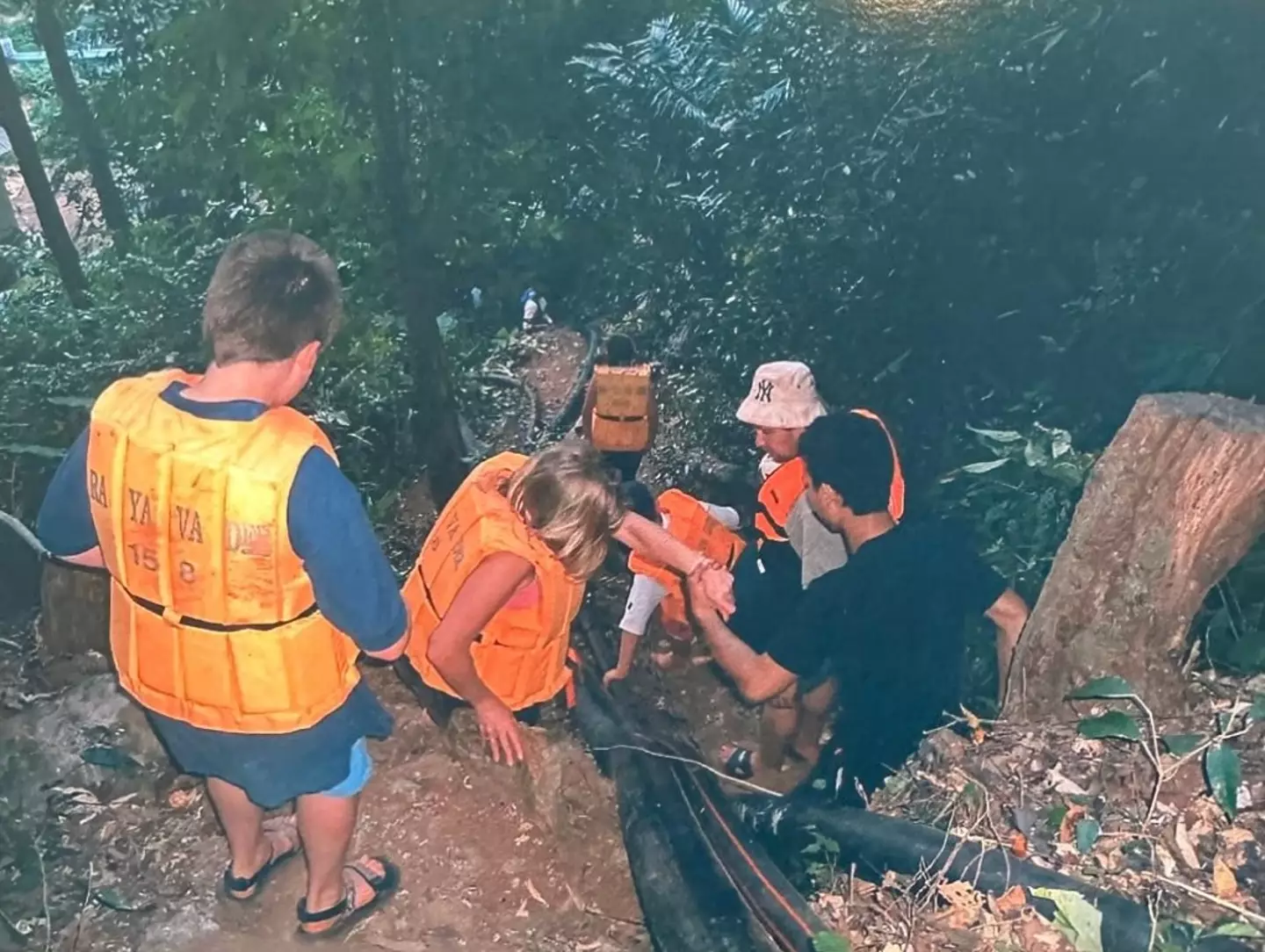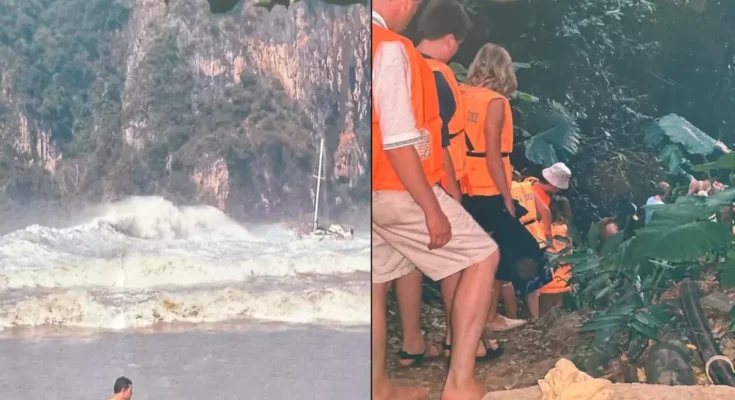The 2004 tsunami devastated communities in countries such as Indonesia, Thailand and Sri Lanka
A young woman who scaled the side of a mountain with her family to survive a devastating tsunami revealed how the disaster impacted her growing up.
Early in the morning on 26 December, 2004, a devastating earthquake erupted deep under the Indian Ocean, close to the coast of Sumatra, Indonesia. In the following hours, waves reaching over 100 feet would devastate coastal areas of several countries in the region.
Later known as the Boxing Day tsunami, around 220,000 people would die in the disaster – making it the second deadliest in human history.
Some of the worst places hit by the tsunami were the idyllic tourist beaches of Phuket, Phi Phi and Krabi province in Thailand, with 2,000 tourists amongst the death toll in the Southeast Asian country.
One of the tourists to survive the terrifying disaster was 26-year-old Louise*, who had been on holiday in an island off the coast of Krabi with her older brother and parents on the morning of 26 December.
A family holiday that turned into a nightmare
Just six-years-old at the time, Louise had spent the morning with her family enjoying breakfast on the beach before heading back to their beachside hotel. They would only reach the hotel’s pool before noticing that something was very wrong.
“Everyone was like, standing around the pool [and] staring at the sea,” she recalled. “Basically the sea had just gone miles back, and then we just saw this white line basically just coming towards us.”
What followed was a frantic scramble inland, with Louise and her family scrambling onto the roof of a local hospital before moving up a cliff-face over fears that this would not be high enough to protect them.
“It was carnage, there was people screaming and everyone’s just running,” she said. “We were just like ‘there’s a height, let’s get up there.”
The family finally settled on top of one of the island’s cliffs and then waited out what they hoped would be the worst of the disaster, before cautiously making their way off the island the following day.

Louise and her family witnessed the tide change from their hotel (Supplied)
The impact of witnessing a major disaster as a child
The impact of witnessing such a major natural disaster at the age of six didn’t sink in immediately for Louise, who recalls being confused as to why people at school were making ‘a big fuss of her’ after Christmas, however the tsunami would have a lingering effect on her over the years.
A fear of the ocean was a particular concern for Louise, who remembered feeling nervous when she was near the shoreline.
“I remember being scared of the sea for like, four years, which sounds really stupid,” she recalled, explaining that seeing the waves rolling back and forth would remind her of seeing the tide recede on 26 December.
“The sea would like go back a tiny bit, just because it does, and I would be like ‘oh my god, it’s going to happen again’.”

The family were forced to flee up a cliff to shelter from the waves (Supplied)
Dealing with the trauma from the event
Louise’s parents were also left completely shaken by the events, with the family stopping travelling abroad over the winter holidays for a while.
“We used to go aboard every single Christmas, because my parents were teachers,” she continued. However, being involved in a natural disaster changed their outlook.
“[After the tsunami] my mum was like, ‘right, we’re never going away again’,” Louise added. “Because it was just so pointless. Like, we did not need to be there. We could have just been at home in England.”
Seeing Tom Holland and Ewan McGregor’s 2012 disaster epic The Impossible would also bring up memories of the disaster, allowing a now older Louise to realise how lucky she and her family had been on the day.
“My dad didn’t want to watch it because he found it a bit too much. It was obviously very stressful for him,” she said.

The 2004 Indian Ocean tsunami is the deadliest tsunami on record (Supplied)
Louise, meanwhile, just felt grateful that her family didn’t end up separated during the event.
“I was like, Oh my God. Like, so many people have not made it through this,” she said. “And I just felt so lucky that I happened to [together] that morning.
“Even if it happened an hour earlier, we were literally on the beach, having breakfast. [Had] we any place at the beach, we wouldn’t have been able to get off in time.”



